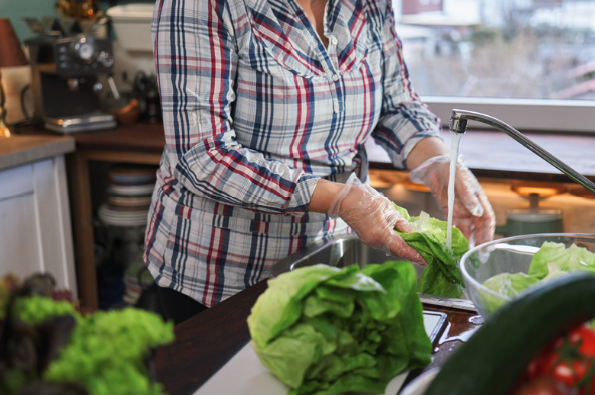September is National Food Safety Education Month
September is National Food Safety Education Month.
 Practicing good food safety is in everyone’s best interest, but it is especially important for pregnant women. Did you know, that one out of every six people in America get foodborne illness every year? Foodborne illness occurs when harmful microorganisms (bacteria, viruses, or parasites) are ingested from food or drink. Foodborne illness can cause stomach pain, diarrhea, vomiting, fever, and other symptoms. Sometimes you may not feel sick or may have minor symptoms and not know that it is a food borne illness. This is dangerous not only to you but your unborn child as well.
Practicing good food safety is in everyone’s best interest, but it is especially important for pregnant women. Did you know, that one out of every six people in America get foodborne illness every year? Foodborne illness occurs when harmful microorganisms (bacteria, viruses, or parasites) are ingested from food or drink. Foodborne illness can cause stomach pain, diarrhea, vomiting, fever, and other symptoms. Sometimes you may not feel sick or may have minor symptoms and not know that it is a food borne illness. This is dangerous not only to you but your unborn child as well.
So why are pregnant women and at an increased risk for severe complications or even death from foodborne illness? Well, you and your unborn baby’s immune system are not strong enough to fight off harmful bacteria. The good news is most foodborne illness is preventable.
Follow these 4 steps to prevent foodborne illness to keep you and your unborn baby safe.
- Clean – thoroughly wash hands and all utensils and cooking surfaces with warm soapy water. Be sure to also thoroughly rinse fruits and vegetables to remove any dirt and microorganisms.
- Separate – keep all raw meat, poultry, and fish separate from ready-to-eat foods. Make sure to not cross-contaminate!
- Cook – always cook temperatures to appropriate temperatures. Keep food out of danger zone and above 140◦
- Chill – refrigerate food within 2 hours and discard if left out for more than 2 hours at room temperature. If it is hot (90◦F+) discard within 1 hour if left out. Keep food out of danger zone and below 40◦
There are two specific foodborne illness that moms-to-be need to be aware of. But any foodborne illness is a concern and may lead to serios complications for pregnant women and their unborn child.
Listeria monocytogenes
These bacteria can grow in the refrigerator where most other bacteria cannot. It is commonly found in refrigerated foods, ready-to-eat foods, unpasteurized milk, and milk products. In order to prevent this illness:
- Follow ‘4 Steps to Prevent Foodborne Illness’
- Heat all hotdogs and lunchmeat to steaming hot. Do not consume if not steaming hot.
- Eat only hard cheeses. Do not eat soft cheeses like Feta, Brie, queso blanco, or queso fresco.
- Drink only pasteurized milk and consume foods made with pasteurized milk.
- Only consume cooked seafood. Do not consume refrigerated smoked seafood.
Toxoplasma gondii
This parasite is found in raw and undercooked meat, unwashed fruits and vegetables, and contaminated water. It is also found in dirty cat-litter boxes and outdoors where cat feces can be found.
- Follow ‘4 Steps to Prevent Foodborne Illness’
- Cook meat thoroughly and to the correct temperature.
- Wash hands frequently or wear gloves when cleaning cat litter box, gardening, or handling sand from a sandbox (where cat feces may be found). If possible, have someone else clean cat litter box.
Have food safety questions?
Contact us at 913-715-7000 or foodhelp@jocogov.org